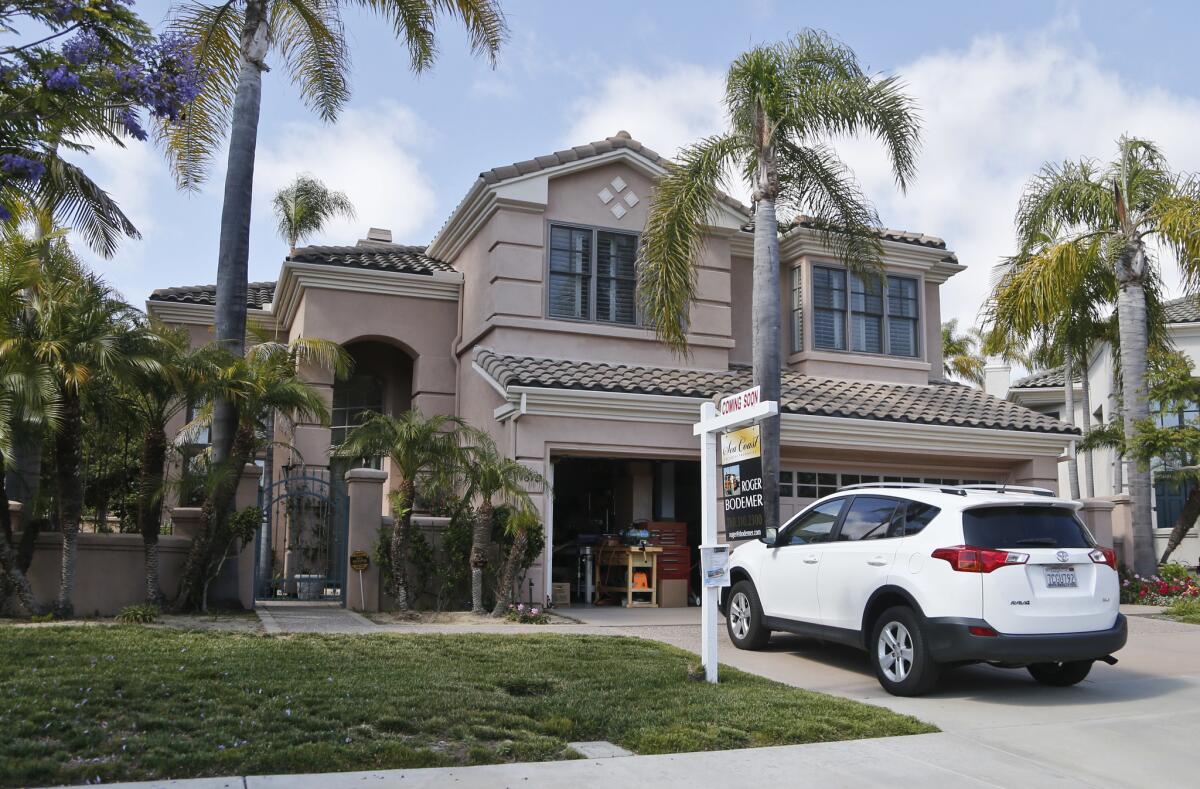Mortgage rates keep rising after Trump’s election, threatening home affordability

Long-term U.S. mortgage rates continued to surge this week in the aftermath of the election of Donald Trump as president.
Mortgage giant Freddie Mac said Wednesday that the average rate on a 30-year fixed rate loan shot up to 4.03%, the highest since July 2015 and up from 3.94% a week earlier. The rate on 15-year home loans climbed to 3.25%, up from 3.14% last week and highest since January.
Long-term U.S. interest rates have climbed since Trump was elected Nov. 8. That is largely because bond investors believe the president-elect’s plan to cut taxes and spend massively on roads, bridges, airports and other infrastructure could ignite inflation. When they foresee rising inflation, investors demand higher long-term rates and pay lower prices for bonds.
The yield on 10-year Treasury notes has risen from 1.87% on Election Day to 2.38% Wednesday.
The expectations of economic stimulus from tax cuts and higher infrastructure spending that are driving up interest rates have also pushed stocks higher. On Wednesday, the Dow Jones industrial average closed above 19,000 for the first time.
Some minor help to home buyers did come Wednesday when the Federal Housing Finance Agency raised the loan limits on so-called conforming mortgages purchased by Fannie Mae and Freddie Mac, which tend to have cheaper rates than other loans.
In high-cost counties, including Los Angeles and Orange, the loan limit rose from $625,500 to $636,150. In lower cost counties, including Riverside and San Bernardino, the limit climbed from $417,000 to $424,100.
Still, many homes in Southern California cost far more than those ceilings and rising mortgage rates pose a threat to the housing market.
Low rates had fueled a rally in home sales. The National Assn. of Realtors said Tuesday that sales of existing homes rose 2% in October to a seasonally adjusted annual rate of 5.6 million — the strongest pace since February 2007. Higher interest rates, along with rising house prices, could reduce demand for housing.
For the moment though, it appears that rising rates are having the opposite effect as buyers rush to purchase a home, fearful that rates will only climb further.
The Mortgage Bankers Assn. said Wednesday that mortgage applications for new sales jumped 13% in the week ended Nov. 18, compared with the previous week.
“People are panicked and jumping in to buy,” Richard T. Cirelli, head of RTC Mortgage Corp. in Laguna Beach.
To calculate average mortgage rates, Freddie Mac surveys lenders across the country between Monday and Wednesday each week.
The average doesn’t include extra fees, known as points, which most borrowers must pay to get the lowest rates. One point equals 1% of the loan amount.
The average fee for a 30-year mortgage was unchanged at 0.5 point. The fee on 15-year loans stayed at 0.5 point.
Rates on adjustable five-year loans climbed to 3.12% this week from 3.07%. The fee was unchanged at 0.4 point.
Staff writer Andrew Khouri contributed to this report.
UPDATES:
12:25 p.m.: This article was updated with additional details on mortgage purchase applications and loan limits for conforming loans.
This article was originally published at 9:15 a.m.
More to Read
Inside the business of entertainment
The Wide Shot brings you news, analysis and insights on everything from streaming wars to production — and what it all means for the future.
You may occasionally receive promotional content from the Los Angeles Times.










